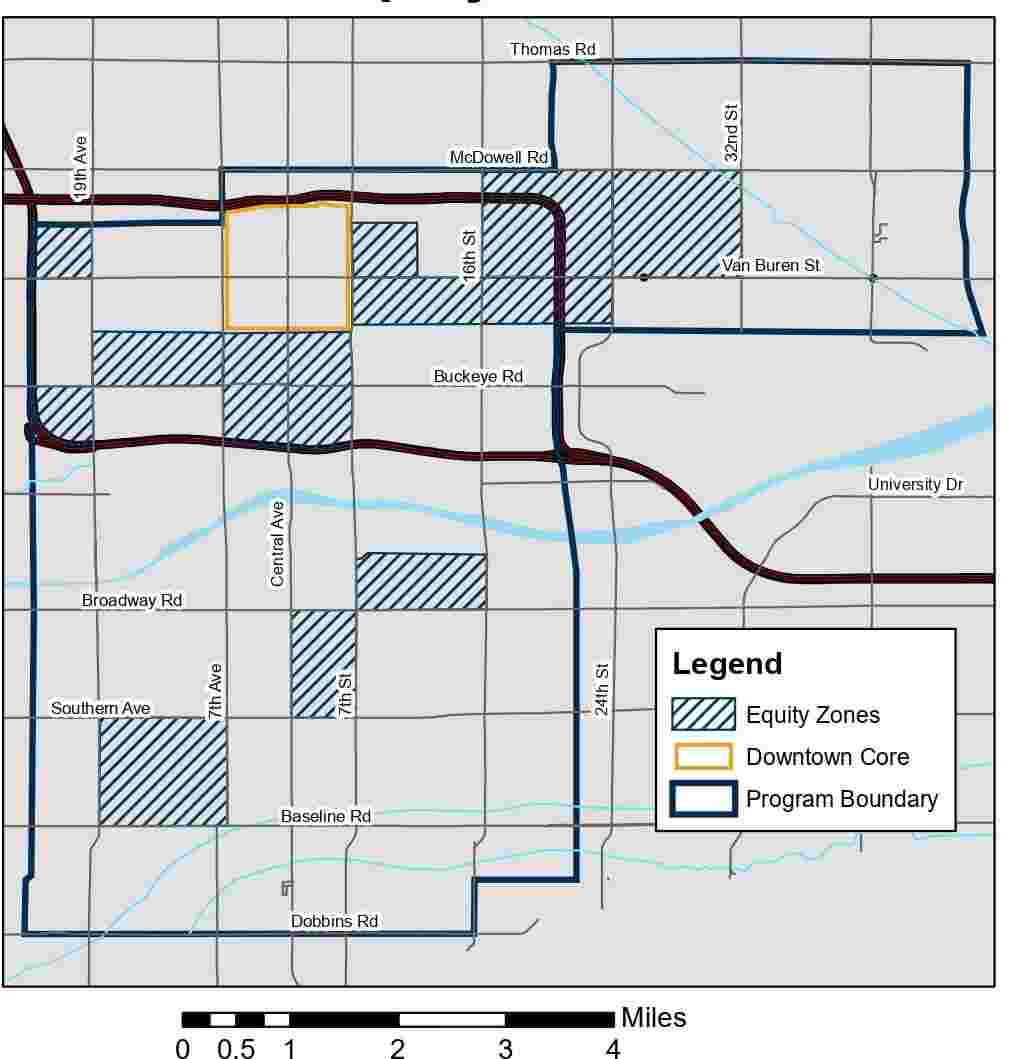11/28/2023
Phoenix's micromobility program set for major expansion to reach more neighborhoods
In a significant move towards improving urban mobility, the city of Phoenix has announced plans to expand its micromobility program by extending the operational boundaries of its services, refining existing policies to be more conducive for both vendors and customers and implementing strategies to upgrade the current infrastructure within the program.
This initiative represents a significant milestone in the city's ongoing pursuit to provide sustainable and accessible transportation solutions for its residents and visitors.
Background and current status of the program
Since its inception as a pilot in September 2019, Phoenix's Micromobility Program has undergone remarkable growth. By January 2023, what started as a temporary experiment had become a permanent fixture in the city's transportation network. Managed by well-known scooter rental companies Lime and Spin, the program now offers a varied collection of e-scooters, traditional pedal bicycles, and e-bikes.
Starting in Downtown Phoenix, the program's initial phase was a resounding success, with users logging over 330,000 e-scooter rides. This impressive uptake demonstrated a robust demand for micromobility solutions, leading to the program's expansion into neighborhoods south and east of Downtown.
Since January 2023, ridership has steadily increased, peaking during the Super Bowl event in February, with 34,731 trips. And despite a decrease in hotter months, with 30,489 trips in June, the program saw over 185,000 trips from January to June 2023.
At the moment, the Phoenix Street Transportation Department has plans to expand the program's boundaries and enhance the vehicle inventory for 2024.
Key highlights of the expansion as suggested by the vendor vs committee recommendation
In an effort to enhance the Micromobility Program, vendors Spin and Lime submitted a policy update proposal to Phoenix's Streets Department on June 2, 2023. These suggestions, currently under the review of the Transportation, Infrastructure, and Planning Subcommittee, reflect the vendors' insights gained from operating within the program and their understanding of user preferences and patterns.
Concurrently, Phoenix officials are also seeking public input on expanding the program's reach. An online survey in English and Spanish is open for residents to share their views on this expansion until November 30, 2023.
Here are the key recommendations from the tabled proposal:
Increased program scope and boundary expansion

Source: https://www.phoenix.gov/streets/scooters
Currently, the operation of scooters is confined to Phoenix's Downtown core and adjacent areas, with certain no-ride zones like the Capitol Mall area and city parks. That said, data shows increased demand for e-scooters and e-bikes outside these boundaries, especially near light rail extensions, with about 2,000 trips linked to public transit stops in early 2023.
The vendors advocate for a phased expansion of the program. The first phase in 2023 aims to extend the service zone to Midtown, Uptown, Cactus Gardens, and North Phoenix, stretching north to Route 101 and east to Tatum Boulevard. The second phase in 2024 targets further expansion to South and Southwest Phoenix, extending the zone west to the Agua Fria River and south to areas like Del Rio Ranch, Sienna Vista, Paseo Pointe, and Montana Vista.
The Phoenix Street Transportation Department is considering expanding the boundary along the light rail corridor, potentially adding up to two miles on each side, initially targeting neighborhoods south and east of Downtown.
Equity zone compliance
The Phoenix Micromobility Program mandates a 30% fleet deployment in 'Equity Zones' areas identified for their historical underinvestment and limited transportation options. Most of the program's ridership within these zones is concentrated in central and eastern Phoenix, in contrast to south Phoenix.
Vendors are also obligated to offer a 30% discount for trips starting in Equity Zones and reduced rates for low-income users. However, as of January, only 12% of the fleet was deployed in these zones, increasing to 26% by June but still falling short of the 30% target. Despite the increased number of vehicles, utilization rates in Equity Zones remain low for both e-scooters and e-bikes.
Spin and Lime have requested to reduce their Equity Zone fleet allocation from 30% to 15% due to low ridership and to better align with current demand. The Phoenix Street Transportation Department suggests a dynamic approach, adjusting the deployment to a minimum of 15% based on utilization while keeping the 30% discount to encourage use and inclusivity.
Fleet size and bicycle compliance
Each vendor is allowed to deploy up to 1,500 vehicles, with at least 20% of the vehicles being traditional bikes and e-bikes. However, from January to June 2023, e-bikes averaged only 7.6% of the fleet due to their lower usage than e-scooters.
In response, vendors proposed lowering the e-bike deployment requirement from 20% to 5%, planning to increase this percentage as ridership grows. Considering current trends, the Transportation, Infrastructure, and Planning Subcommittee staff suggest revising the minimum e-bike fleet requirement to 10%.
Operating hours
The current operating hours of Phoenix's Micromobility Program are from 5 a.m. to 11:59 p.m. daily, designed to prevent use by intoxicated individuals. Vendors have proposed extending service to 24/7, citing that it will increase overall program utilization by 6%, potentially leading to more trips and a broader user base; replacing more car trips, particularly between midnight and 5 a.m. They also plan to use app-based technology, including sobriety tests, to ensure safety and prevent intoxicated access.
However, the Phoenix Street Transportation Department recommends maintaining the existing operating hours as they intend to further investigate the potential impacts of 24/7 service on the Micromobility Program and overall public safety.
Parking compliance
As it stands, the program has distinct parking rules for different areas within the city. In the Downtown core, riders must park in clearly marked designated corrals. Outside Downtown, vehicles (with inbuilt locks) must be securely locked to a bike rack or similar vertical element.
The pilot program exclusively used corral parking, but the permanent program introduced free-floating parking, leading to challenges like improperly parked vehicles on sidewalks or pedestrian ramps. The lock requirement was implemented to mitigate these issues; however, problems with unlocked or improperly parked vehicles still persist.
The vendors recommend implementing virtual parking corrals throughout the Phoenix/ Scottsdale area to address this. Facilitated by an app, this approach would guide riders to designated parking areas with a pop-up message if they attempt to end their trip outside a parking zone.
On the other hand, Transport Department recommend establishing physical parking corrals program-wide, within both the current and proposed future boundaries of the Micromobility Program.
Implications and future prospects
While the department isn't recommending an immediate expansion of the program's boundaries, it plans to explore this possibility over the next six months, eyeing potential expansion around January 2024.
This cautious approach aims to balance current operational success with future growth potential. The anticipated expansion is expected to ease urban congestion, lower carbon emissions, and provide equitable transportation, especially in areas with limited public transit access.
Financially, the program is proving beneficial for the city. Vendors pay Phoenix a per-trip fee ranging from $0.15 to $0.25, with a minimum annual guarantee of $15,000 per vendor. From January to June 2023, the city received $20,421.43, exceeding this guarantee. The projected
annual revenue exceeds $50,500, which could also strengthen the case for expanding the program.


